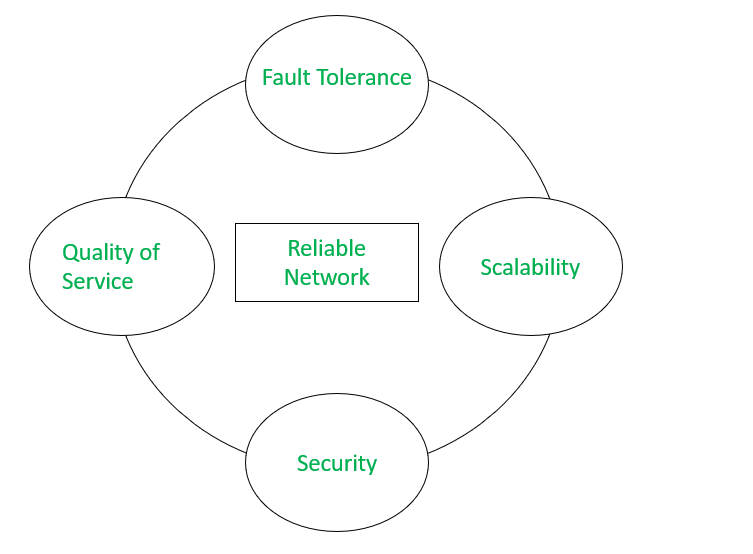Considerations for a Reliable Network
Last Updated :
22 Jan, 2021
In this article, we will discuss what are essential things to be taken care of while building a network.
The Network must support a wide range of applications and should also accommodate future technologies. To ensure every existing network meets the requirements of end-user expectations and supports all the future networking trends, essential things to be considered are

- Fault Tolerance :
Every network has a lot of users. Such networks must ensure that end-users will not be affected by any kind of interruptions in networks. In short, these networks must be fault-tolerant, which limits the impact on a few end-users if any network device does not work properly, and the networks should be capable of doing quick recovery when a network failure occurs. Networks must contain multiple paths to deliver a data packet from a sender to a receiver, so that if any path from a router fails, then the other router will complete the task.
- Scalability :
Networks must accommodate new users, even if millions of users come at a time to use a service, networks must be capable of serving all the users without degrading the performance of existing users and new users and must be capable of providing all the services requested by the users.
- Quality of Service :
An end-user can utilize a single network to browse web pages, stream a live video, use Alexa, use a voice call over the internet, if the bandwidth exceeds the limit, then the network undergoes congestion which will degrade the user experience, this may lead to buffering of live-streaming video or it may show the impact on a voice call or it may lead to increase the load time of web page. But keeping Quality of Service in network architecture, the router can manage the flow of data and give more priority to voice calls. So Quality of service is a very important aspect of Reliable Network.
- Security :
Here Infrastructure Security and Information Security both are important, while Infrastructure security refers to securing the network devices physically from unauthorized use and keeping them safe. While Information Security refers to the protection of data that is carried as data packets over the network and the information stored on network-attached devices. The primary goals of Network Security are –
Confidentiality – Ensuring that only authorized users can access the data
Integrity – Ensuring that data is not modified or altered during the transmission of the data over the network.
Availability – Ensuring that data is always available to access by the intended users
Like Article
Suggest improvement
Share your thoughts in the comments
Please Login to comment...